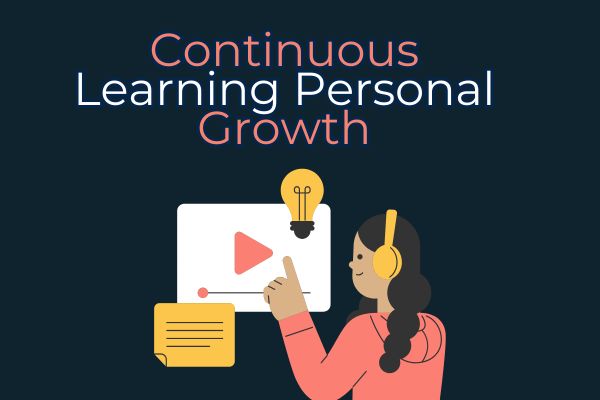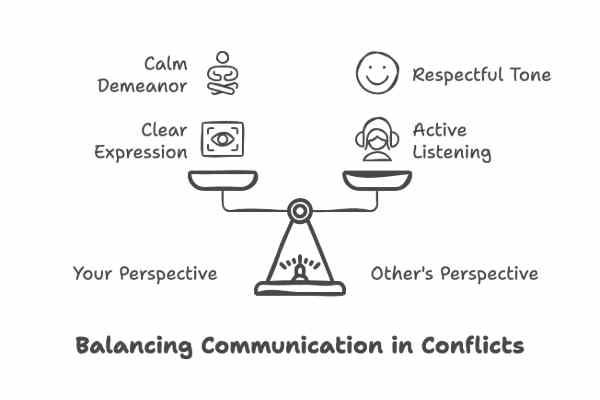In today’s competitive job market, technical knowledge and expertise are no longer the only factors that define career success. While hard skills — such as specific job-related knowledge, expertise, and certifications — are undeniably important, it is the mastery of soft skills that often makes the difference between a good employee and an exceptional one. Soft skills, which include interpersonal skills, communication abilities, and emotional intelligence, play a critical role in helping individuals navigate the workplace, build strong professional relationships, and drive career growth.
In this article, we will explore the significance of soft skills in career advancement, the types of soft skills that are essential for success, and how individuals can cultivate and develop these skills to boost their career prospects.
What Are Soft Skills?
Soft skills, often referred to as interpersonal or people skills, are the non-technical abilities that enable individuals to interact effectively and harmoniously with others. Unlike hard skills, which are job-specific and teachable, soft skills are more about personal traits and behaviors that influence how people communicate, collaborate, and approach challenges in the workplace.
Some examples of soft skills include:
- Communication: The ability to convey information clearly and effectively.
- Teamwork: The ability to work well with others toward a common goal.
- Problem-solving: The ability to analyze situations and find solutions.
- Adaptability: The ability to adjust to new situations and challenges.
- Time management: The ability to prioritize tasks and meet deadlines.
- Leadership: The ability to guide and motivate a team.
- Emotional intelligence: The ability to recognize, understand, and manage one’s own emotions and the emotions of others.
These skills are not limited to specific industries and are universally valued by employers. In fact, many employers consider soft skills just as important, if not more so, than technical abilities.
Why Soft Skills Matter for Career Success
Soft skills have become increasingly important in the modern workplace. As the workplace evolves and job functions become more complex, the ability to work well with others, communicate effectively, and adapt to change has gained greater significance. Here are some reasons why soft skills are essential for career success:
1. Enhancing Communication and Collaboration
Effective communication is a cornerstone of success in any professional setting. Whether you are interacting with colleagues, clients, or superiors, the ability to convey your thoughts clearly and listen actively is critical. In a world where many teams are geographically dispersed or work remotely, communication becomes even more vital. Soft skills, such as active listening, clear articulation, and empathy, can help bridge gaps, foster better teamwork, and enhance productivity.
Moreover, soft skills enable individuals to navigate group dynamics effectively. Collaboration requires the ability to work with people from diverse backgrounds and viewpoints, and strong interpersonal skills can help foster an inclusive, cooperative work environment.
2. Building Strong Professional Relationships
Building and maintaining positive relationships with colleagues, clients, and managers is crucial for career growth. Employees with strong soft skills are often seen as approachable, trustworthy, and dependable, which allows them to establish lasting relationships within the organization. These relationships can lead to better teamwork, more opportunities for mentorship, and improved job satisfaction.
Networking is also an important aspect of career advancement, and individuals with excellent soft skills are more likely to make meaningful connections with others in their industry. They know how to engage with others in a professional and personable manner, making them stand out in a crowd.
3. Improving Leadership and Management Skills
Leadership is not just about having the technical expertise to do a job; it’s about guiding and motivating others to perform at their best. Soft skills such as emotional intelligence, empathy, and effective communication are essential for leading teams and managing people. Good leaders are able to inspire trust, provide constructive feedback, resolve conflicts, and build a positive work culture.
Additionally, soft skills such as adaptability and decision-making are critical for managers and leaders who must navigate changing environments, handle challenges, and make informed choices under pressure.
4. Enhancing Problem-Solving and Critical Thinking
Soft skills such as critical thinking, creativity, and problem-solving are highly valued in the workplace because they allow individuals to approach challenges with an open mind and innovative ideas. Professionals who can analyze situations, think outside the box, and come up with practical solutions tend to stand out as valuable assets to their organizations.
Additionally, the ability to collaborate effectively and draw on the collective strengths of a team enhances the problem-solving process. Whether working independently or as part of a group, soft skills in problem-solving can lead to more successful outcomes and greater job satisfaction.
5. Demonstrating Adaptability in a Changing Workplace
In today’s fast-paced world, change is inevitable. Whether it’s a shift in technology, new workplace trends, or evolving business strategies, employees who can adapt to change are in high demand. Soft skills like flexibility, resilience, and a willingness to learn help individuals stay ahead of the curve and thrive in environments that require continuous learning and adjustment.
Employees who exhibit adaptability are seen as resourceful and dependable, qualities that are crucial for career success. They are also more likely to take on new challenges and responsibilities, which can lead to career growth opportunities.
6. Managing Stress and Emotional Well-being
Stress is a common factor in many professional environments. However, individuals with strong soft skills are better equipped to handle stress effectively. Emotional intelligence, a key soft skill, enables individuals to manage their emotions, remain calm under pressure, and respond appropriately in stressful situations.
Being able to handle stress, maintain focus, and support colleagues through difficult times contributes to overall job satisfaction and performance. Employees who can manage their emotions are also more likely to maintain positive relationships, even when faced with challenges.
Also check: Unlocking Your Leadership Potential Through Self-Awareness
Types of Soft Skills That Matter Most for Career Success
Different careers and industries may require different sets of soft skills, but some key abilities are universally important across all professional fields. Here are some of the most essential soft skills for career success:
1. Communication Skills
Effective communication is arguably the most important soft skill for career success. Being able to clearly convey ideas, listen actively, and respond appropriately is crucial in every aspect of work. Communication skills are needed for:
- Presenting ideas or reports to colleagues or clients.
- Participating in meetings and discussions.
- Writing emails and reports.
- Listening to feedback and offering constructive criticism.
2. Teamwork and Collaboration
Teamwork is essential in most professional settings. Even if you work independently, your success often depends on your ability to work with others. Collaboration involves:
- Sharing ideas and resources.
- Supporting colleagues in achieving common goals.
- Resolving conflicts and building consensus.
3. Problem-Solving and Critical Thinking
Employers value employees who can approach challenges with a clear, logical mindset and develop creative solutions. Problem-solving involves:
- Identifying issues and analyzing them.
- Finding solutions based on available resources.
- Thinking critically to assess options and choose the best course of action.
4. Adaptability and Flexibility
Adaptable employees are more likely to thrive in today’s ever-changing work environment. Adaptability is key to:
- Navigating new technologies and systems.
- Adjusting to changes in job responsibilities or company structure.
- Managing unexpected challenges and changes in priorities.
5. Time Management
The ability to manage time effectively is crucial for maintaining productivity and meeting deadlines. Strong time management skills include:
- Prioritizing tasks based on urgency and importance.
- Avoiding procrastination.
- Setting realistic goals and sticking to schedules.
6. Leadership and Influence
Effective leaders inspire, motivate, and guide others. Leadership skills involve:
- Setting a positive example.
- Guiding teams toward shared goals.
- Providing feedback and offering support to colleagues.
7. Emotional Intelligence (EQ)
Emotional intelligence is the ability to recognize and manage your own emotions, as well as understand and influence the emotions of others. It involves:
- Self-awareness: Recognizing your emotions and their impact.
- Self-regulation: Controlling impulses and staying calm under pressure.
- Empathy: Understanding others’ emotions and perspectives.
Also check: How to Discover Your True Purpose
How to Develop Soft Skills for Career Success
Soft skills are not innate; they can be learned and developed over time with practice and commitment. Here are some practical strategies to help you enhance your soft skills:
1. Seek Feedback
Ask for constructive feedback from colleagues, managers, or mentors. This will help you identify areas for improvement and give you specific guidance on how to develop your soft skills.
2. Practice Active Listening
Listening is an important aspect of communication. Practice active listening by focusing on the speaker, asking clarifying questions, and responding thoughtfully.
3. Participate in Team Activities
Engage in group projects, team-building exercises, or volunteer opportunities to practice collaboration and teamwork. These activities provide hands-on experience in working with others toward common goals.
4. Take Courses or Workshops
Enroll in workshops or online courses that focus on soft skills development. Many organizations offer training in communication, leadership, time management, and emotional intelligence.
5. Set Personal Goals
Set specific, measurable goals for improving your soft skills. For example, aim to improve your public speaking ability by delivering a presentation or work on your time management by planning your day more effectively.
6. Observe and Learn from Others
Pay attention to how successful colleagues or mentors handle situations that require soft skills. Observe their communication style, problem-solving approach, and leadership techniques, and learn from their behavior.
Conclusion
Soft skills are essential for achieving career success, and they can often make the difference between advancing in your career or stagnating. As the modern workplace continues to evolve, the ability to communicate effectively, work well with others, think critically, and adapt to change will remain crucial for professional growth. By developing and nurturing your soft skills, you can build strong professional relationships, enhance your leadership capabilities, and increase your chances of long-term career success.






